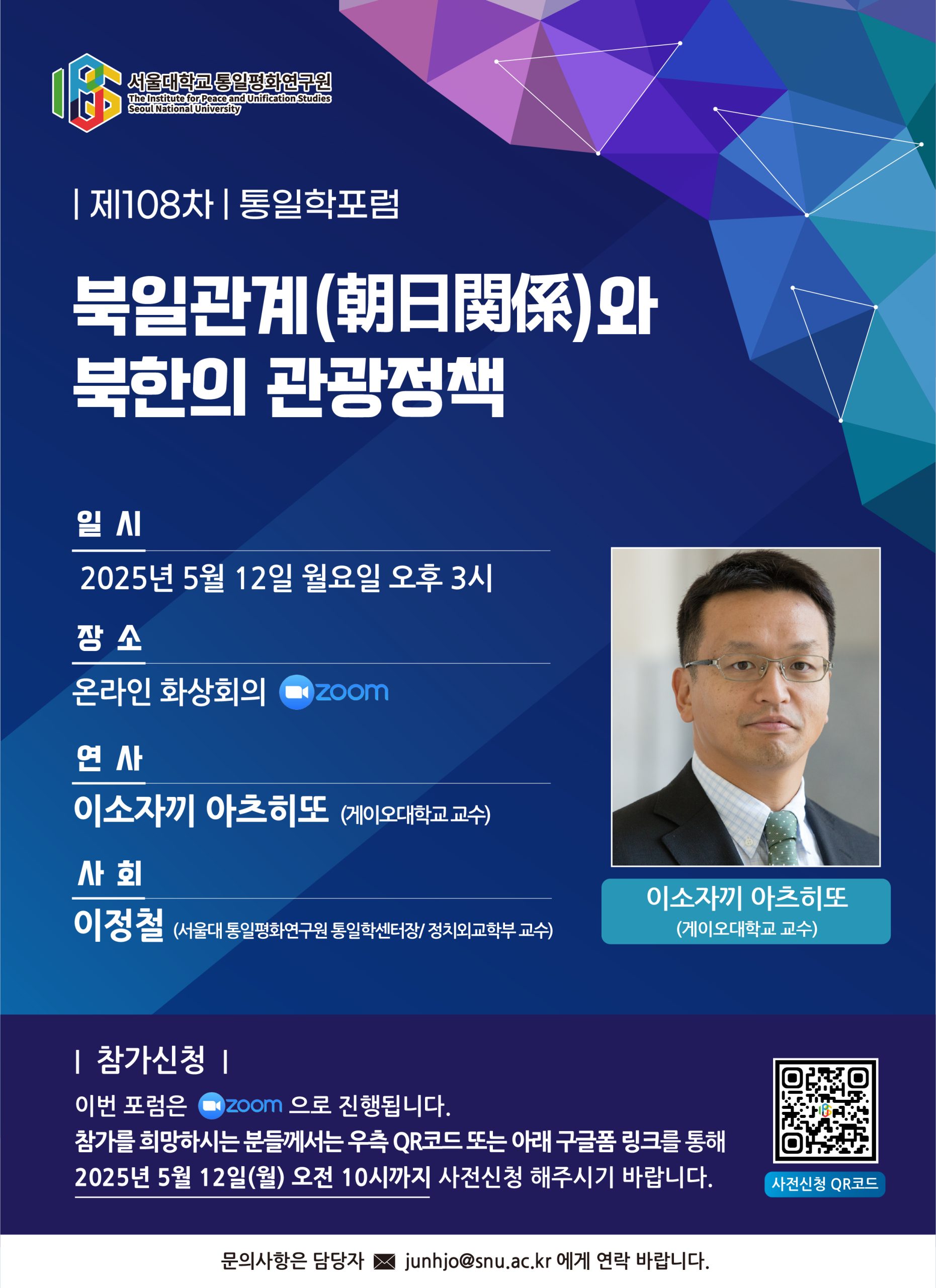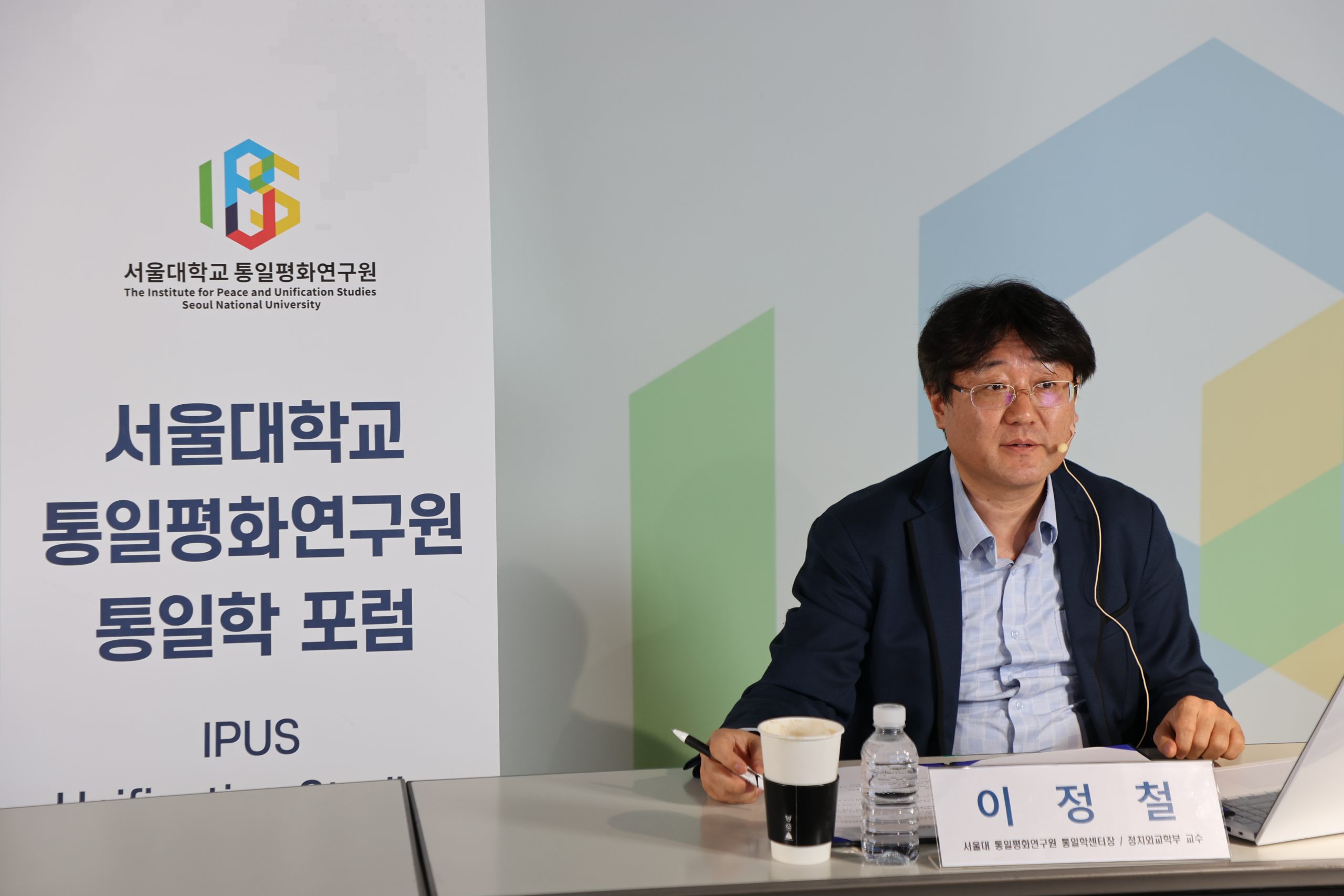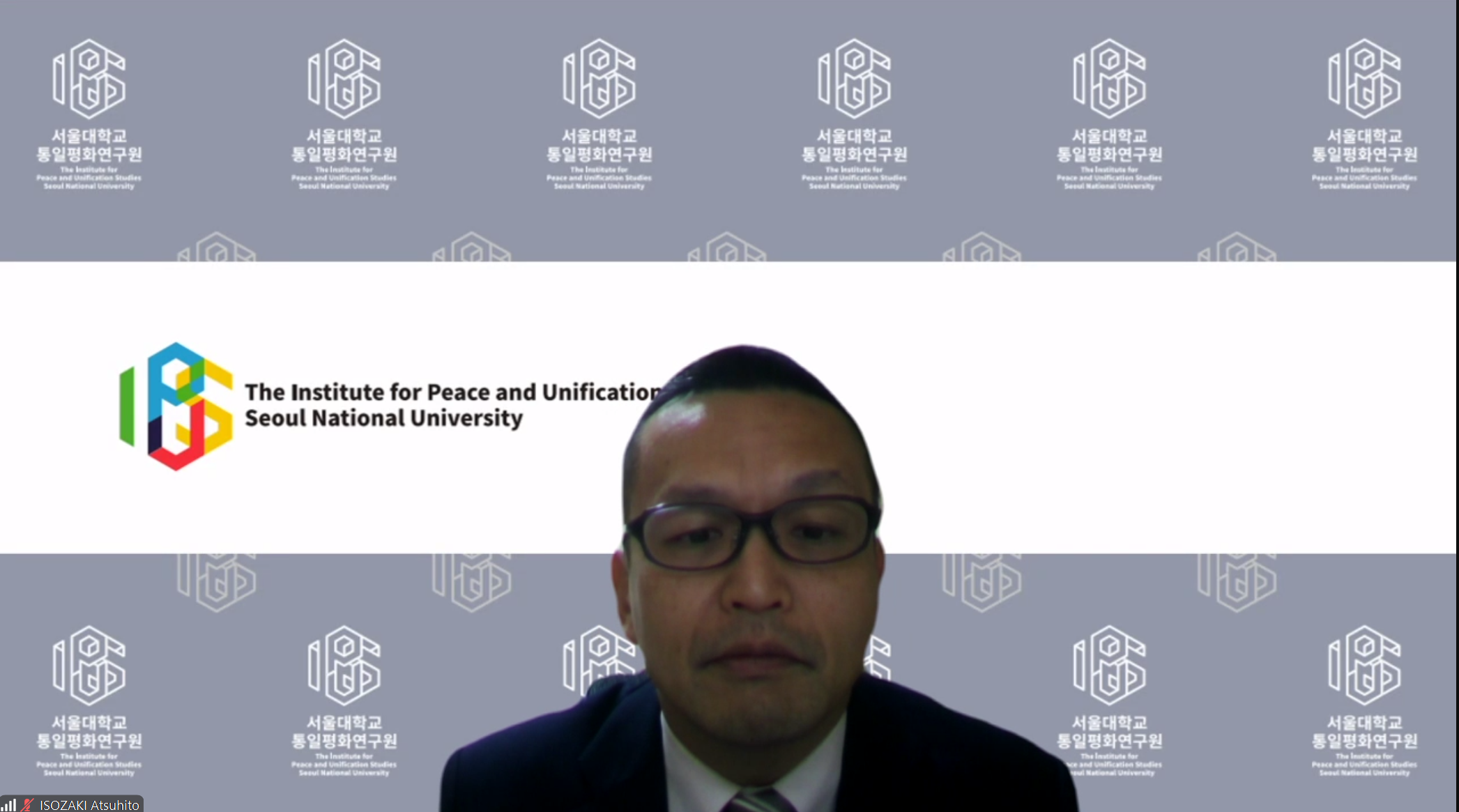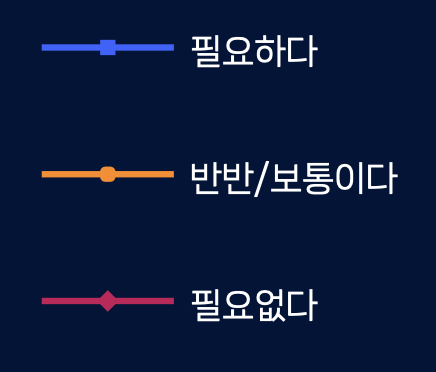[108th Unification Studies Forum] DPRK-Japan Relations and North Korea’s Tourism Policy
- Date: Monday, May 12, 2025, 15:00-16:30
- Venue: Online Video Conference (ZOOM)
- Speaker: ISOZAKI Atsuhito (Professor, Keio University)
- Moderator: Lee, Jung-Chul (Head of Center for Unification Studies at IPUS/ Professor, Dept. of Political Sciences and Int. Relations)
- Topic: DPRK-Japan Relations and North Korea’s Tourism Policy
The Institute for Peace and Unification Studies (IPUS) at Seoul National University hosted the 108th Unification Studies Forum on Monday, May 12, 2025, under the theme “DPRK-Japan Relations and North Korea’s Tourism Policy.” The “Unification Studies Forum” is an expanded and reorganized version of the former “Unification Policy Forum,” which held 75 sessions from 2006 to 2020. The forum was moderated by Lee, Jung-Chul, Head of Center for Unification Studies at IPUS and Professor of Political Science and International Relations at Seoul National University, who opened the event with welcoming remarks.
Professor Isozaki began by addressing the absence of diplomatic normalization between North Korea and Japan, outlining key historical attempts toward normalization. He traced the trajectory from early efforts in the mid-1950s following Stalin’s death and the subsequent easing of global tensions, to rising expectations for dialogue in the wake of China-Japan normalization in the 1970s, the initiation of official negotiations following the 1991 Three-Party Joint Declaration, and Prime Minister Junichiro Koizumi’s 2002 visit to Pyongyang, which produced the “Japan-DPRK Pyongyang Declaration.” Of particular note was the unprecedented admission by Chairman Kim Jong-il of North Korea’s abduction of Japanese citizens, which led to the repatriation of several victims. This moment was presented as a major turning point in the diplomatic history between the two nations.
Professor Isozaki highlighted how the abduction issue profoundly shaped public opinion in Japan and contributed to an increasingly hardline North Korea policy. He reviewed subsequent developments, including the 2014 Stockholm Agreement, the 2023 condolence message sent by Kim Jong-un to Prime Minister Fumio Kishida, and a series of public statements by Kim Yo-jong in 2024. These, he noted, indicated that channels for potential contact still existed. However, he assessed that mutual distrust, entrenched conservative sentiment in Japan, and shifts in North Korea’s strategic environment had thus far prevented substantive progress.
In the second half of his talk, Professor Isozaki turned to North Korea’s tourism policy. He noted that the Kim Jong-un regime had placed increasing strategic emphasis on tourism, particularly from 2018 onward, as seen in large-scale development projects in areas such as Yangdok Hot Springs, the Wonsan-Kalma Coastal Tourist Zone, and the Samjiyon District. He cited the fact that Kim Jong-un conducted over seven on-site inspections of the Yangdok project within a year and a half as evidence of the regime’s intent to use tourism as both a means of foreign messaging and domestic propaganda. Professor Isozaki stressed that for North Korea, tourism is not merely a source of foreign currency, but primarily a tool of political messaging—“propaganda comes first; foreign exchange is secondary.” Through tourism, he explained, North Korea seeks to craft multi-layered narratives for both international and domestic audiences.
Drawing from over 30 years of research and personal travel experience, Professor Isozaki also reviewed the history of Japanese tourism to North Korea, noting that a tourism boom occurred in the 1980s and 1990s, during which major Japanese travel agencies offered packages to Pyongyang. He concluded the lecture by emphasizing that North Korea’s tourism sector is likely to continue serving as a key strategic instrument for domestic and international propaganda. In this context, he called for sustained monitoring and analysis of the political implications of North Korea’s tourism policy.





















